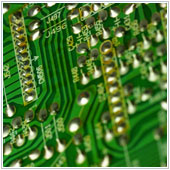This past year was a good one for mobile devices, with some of the most powerful smartphones being released. Some of these have processors that operate at the same speed as most mid-range laptops and desktops. While the speed factor may be the same, the question remains as to whether there are any other similarities.
Let’s take a quick comparison between mobile and desktop processors.
How Are Processors Measured?
The processor, or Central Processing Unit (CPU), is the brain of your device. Its job is to carry out instructions that are located in the program, or app. All processors are measured in Hertz (Hz), which is how many operations can be carried out by the processor in one second. Because they have become so fast, almost all processors are measured in GigaHertz (GHz). A phone or computer with a 2.6 GHz processor should be able to complete 2.6 billion operations in one second.
What’s The Difference Between Mobile And Desktop Processors?
Both computers and smartphones are marketed heavily by their processor, and while the function is the same – both allow the individual devices to work – there are two major differences:
When processors run they generate heat. Lots of heat. Because mobile devices are considerably smaller than computers, the heat generated by a running mobile processor is often amplified and can seriously harm components, or even melt them. Therefore, the developers and designers of the devices limit, or throttle, the speed at which a mobile processor can run. This means that if a processor is getting hot, it will limit its speed, which equates to slower performance.
Because of this throttling, the processor on many phones will actually run slower than the advertised speed. In fact, the advertised speed of mobile processors is normally the maximum. Compare this to most computer processors, where the advertised speed is usually the average running speed, and you begin to see why computers are more powerful.
The second big difference is connected with performance. If you take a computer and compare it to a mobile device with the same speed of processor, the computer will usually be able to do more. This is because the processor is limited in what it can do by the other hardware components, like the RAM, Graphics Processing Unit, etc. Computers have more space, so they can fit more advanced components, and are consequently able to do more.
That being said, processor and other mobile technology is advancing at a blistering pace and it is highly likely that mobile hardware will continue to increase in overall power, and eventually be able to compete more effectively with larger computers.
If you are looking to learn more about the hardware you use on a daily basis, we have the information you need at the ready.
Build Service Profits With ERP
 The number of accounts and websites we have to log in to is growing, and will continue to do so for the foreseeable future. One downside of this increased activity is that security breaches will also continue to rise as well. When it comes to security, often the weakest points are the passwords people use. Far too many passwords are weak and easily guessed, which puts systems and data at risk.
The number of accounts and websites we have to log in to is growing, and will continue to do so for the foreseeable future. One downside of this increased activity is that security breaches will also continue to rise as well. When it comes to security, often the weakest points are the passwords people use. Far too many passwords are weak and easily guessed, which puts systems and data at risk.
Many of the major security threats that harm a business have one factor in common – a hacker gaining access to systems by cracking a user’s password. The one reason hackers are able to get into systems again and again is largely because users often don’t pick strong enough passwords.
Even what we might perceive to be a strong password may not actually be as secure as we think. Sure, when you enter a new password many websites have a bar that indicates how strong your password is, but the issue is, these so called strong passwords are becoming easier to guess as more websites utilize the same requirements.
Think about the last time you changed your password. You were likely told to key in a password longer than 6-8 characters, with at least one capital letter, one number, and a special character like ‘!’ or ‘$’. Many major systems have these exact, or at least very similar, requirements for password setting. However, If this is the norm, and you use a password like this too often then your passwords likely aren’t as secure as you might believe them to be.
The reason for this is because of the way hackers usually capture passwords. The most common method adopted is brute force – getting a username then trying every password combination until the hacker finds one that works. There are programs you can download from the Internet that try thousands or more passwords a second, and many now include special characters, numbers, and capital letters, which makes finding passwords even easier.
How Do I Know If My Password Is Secure?
In an effort to showcase how unsecure some passwords are, Microsoft’s Research (MSR) Center and an intern from Carnegie Mellon University developed a password guesser called Telepathwords.
The way it works is you enter the first few letters of your password and the system guesses the next. It uses common letters and combinations to help gauge the effectiveness of a password. For example, if your password begins with the letter ‘v’, it will tell you that ‘I’, ‘S’ and ‘A’ are the most common letters to follow. If the next letter of your password isn’t one of these three, there is a good chance it is more secure. If the second letter is one of these three, then your password is less secure. This may sound a little complicated, but you should check out the system here.
It is eerie at how accurate the next letters and characters often match, and this is a good tool to determine whether to create a more robust password. You don’t have to worry about testing your password out either as Microsoft has noted that they don’t track the keystrokes, so you password should remain secure.
How Do I Create A Stronger Password?
Ask 10 experts and you will likely get 10 different answers as to what makes a strong password. Here are three different ways to create secure passwords:
- Use an algorithm – The easiest way to do this is take the first letter of a saying and add a number before or after. You can also create a saying and take the first letter of each word, then add the first letter of the website, followed by the last, and then a number. This method is best for when you have a large number of websites you access on a regular basis, it can help you remember your passwords for each without you having to write these down.
- Use a sentence or saying – For systems that allow you to have spaces in your password, try using a random saying like, ‘Dogs like pudding cups’. Sayings like this are harder to crack. This is largely because they include the space and are longer than usual.
- Use an acronym – Come up with a saying that describes you e.g., ‘I’ve worked at a gas station for 20 years’, and take the first letter/number of each word to create: ‘Iwaagsf2y’. This gives you an easy to remember password that can be adapted for other sites.
Regardless of what type of password you develop, you should be aware that even strong passwords can still be cracked with enough persistence. So, you should be sure to change passwords on a regular basis and also not to use the same one twice. This will limit the chances of hackers being able to access your other accounts.
If you are looking for more ways to secure your systems, we can help, so get in touch with us today.
Published on 8th November 2013 by Jeanne DeWitt.


